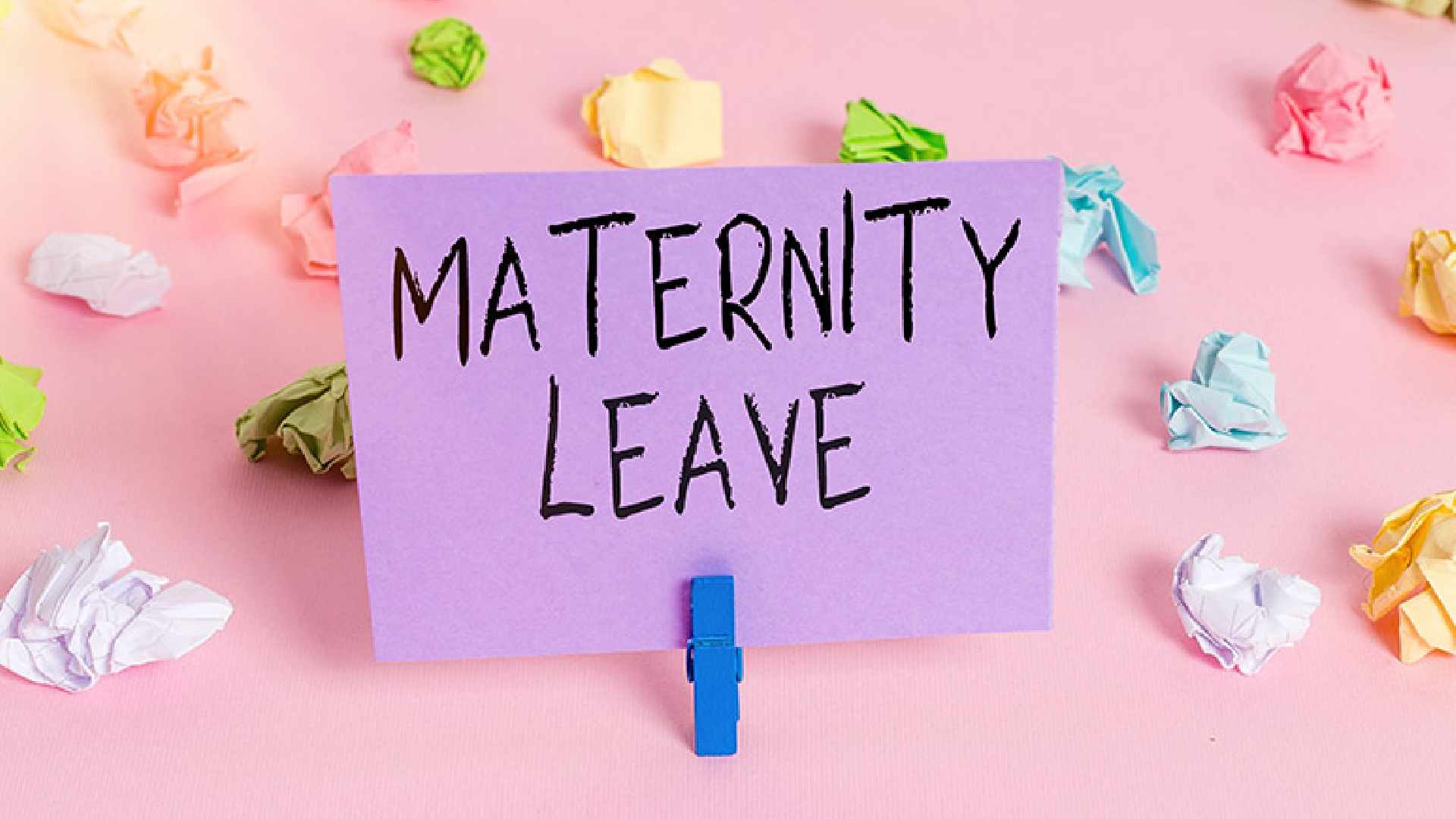Maternity leave in UAE policies play a crucial role in supporting working women during a pivotal phase of their lives. In the United Arab Emirates (UAE), both government and private sectors have maternity leave regulations in place, but they differ in terms of duration, benefits, and eligibility criteria.
In this article, we will provide light on the rights and entitlements of expectant mothers working in both sectors. Understanding these distinctions is essential for women planning families and employers seeking to support their female workforce effectively.
What is maternity leave?
Maternity leave is a period of time that a woman takes off work prior to and after the birth of her baby. It is a period of time in which the mother can adjust to the changes that come with adding a new baby to their family. This type of leave is typically unpaid, although some employers may offer paid maternity leave.
During this time, the mother is often allowed to take time off work to care for her newborn and spend time bonding with the baby. Maternity leave can vary in length depending on the company or country in which it is offered.
Maternity leave is important for the health and well-being of both the mother and baby. It allows the mother to recover from childbirth and adjust to the demands of motherhood while still having the support of her employer. It also allows the mother to bond with her baby and establish a breastfeeding routine. The benefits of maternity leave extend beyond the mother, as it can also help fathers take on a larger role in the care of their newborn.
Maternity leave is an important benefit for working mothers, and it is essential that it is accessible to all women. The more support that women have during maternity leave, the better their chances of returning to their job after maternity leave.
How do women benefit under the new law?
The United Arab Emirates (UAE) is known for its thriving economy and diverse workforce, which includes a substantial number of women in both the public and private sectors. Recognizing the importance of supporting women during maternity, the UAE has implemented maternity leave policies and regulations. They do this in order to safeguard the rights and well-being of expectant mothers. Here are some aspects that play a crucial role in UAE maternity leave.
- Duration: In the UAE, maternity leave typically spans 45 days for government sector employees and 45 calendar days for private sector employees. However, this period may be extended up to 60 days for government employees if necessary for health reasons. For private sector employees, it can be extended up to 65 days if the mother wishes to do so without any health-related conditions.
- Eligibility: To qualify for maternity leave in UAE, women generally need to have completed a certain length of service, which varies between the public and private sectors. In the public sector, women are usually eligible for maternity leave after at least one year of continuous service. In the private sector, eligibility often depends on the employer’s policies, but it is typically between three to six months of continuous service.
- Benefits: During maternity leave in UAE, women in both sectors are generally entitled to their full salary. In the public sector, this is usually the case for the entire duration of leave. However, in the private sector, employers often provide full pay for part of the leave and reduced pay for the extended portion.
- Additional Support: Beyond maternity leave, UAE employers may also offer flexible work arrangements, such as part-time or remote work options, to accommodate new mothers’ needs and ease their transition back to the workforce.
Maternity Leave Duration and Salary Compensation in UAE Government Jobs
In UAE government jobs, maternity leave duration typically spans 45 calendar days. During this maternity leave, government employees are usually entitled to their full salary. This ensures that expectant mothers receive their regular income while taking time off to care for their newborns.
This full salary compensation is an important benefit that supports the financial well-being of mothers during their maternity leave. It allows them to focus on their health and the needs of their newborns without financial concerns. Likewise, it reflects the UAE government’s commitment to providing comprehensive support to working women and promoting a healthy work-life balance.
It is worth noting that these regulations may vary slightly between different government entities and emirates within the UAE. This is why we advise you to consult your specific workplace policies and HR departments.
Comparing Maternity Leave Benefits in UAE Government and Private Employment: Understanding the Differences
The benefits of maternity leave in UAE vary between government and private employment sectors, reflecting distinct policies and regulations.
In government jobs, maternity leave generally spans 45 calendar days, extendable to 60 days if necessary for health reasons. In contrast, the private sector offers 45 calendar days of maternity leave, with an option to extend it to 65 days without health-related conditions. Private sector employees enjoy a longer maximum duration.
Eligibility criteria differ as well. In government roles, women are typically eligible for maternity leave after completing one year of continuous service. Private sector eligibility varies but usually ranges from three to six months of continuous service, often depending on the employer’s policies.
On the other hand, both sectors offer full salary compensation during maternity leave in UAE. However, the private sector often provides full pay for the initial leave period and reduced pay for the extended portion, while government jobs typically maintain full pay throughout the entire leave period.
Also, some government entities may offer additional benefits like flexible work arrangements or support for childcare facilities. In the private sector, benefits can vary between companies, with some providing extra perks such as childcare allowances or lactation rooms.
Government Sector Maternity Leave Benefits in the UAE: A Detailed Analysis
Maternity leave benefits in the government sector of the UAE are designed to support expectant mothers during this significant life event. Here’s a detailed analysis of these benefits with a focus on different aspects:
In government jobs, maternity leave in UAE typically spans 45 calendar days. This duration is a crucial aspect of government sector maternity leave, providing additional time for recovery and bonding with the newborn.
Moving on to eligibility, to qualify for maternity leave in the government sector, women generally need to have completed at least one year of continuous service. This requirement helps ensure that employees have established a degree of job security before taking extended leave.
On the other hand, an essential aspect of government sector maternity leave is that employees are typically entitled to their full salary throughout the entire leave period. This full salary compensation provides financial security to expectant mothers and reduces financial stress during this important time.
Furthermore, some government entities may offer additional benefits to support new mothers, such as flexible work arrangements, childcare facilities, or lactation rooms. These supplementary benefits contribute to a more supportive and accommodating work environment for women returning from maternity leave.
Lastly, it is worth noting that maternity leave in UAE can be extended to 60 days in the government sector if a medical professional deems it necessary for health reasons. This provision underscores the government’s commitment to the health and well-being of expectant mothers and their newborns.
Private Sector Maternity Leave Benefits in the UAE: Unpacking the Variances
Maternity leave benefits in the private sector of the United Arab Emirates (UAE) exhibit unique features and distinctions.
In the private sector, maternity leave in UAE generally encompasses 45 calendar days. However, what sets it apart is the option to extend it up to 65 days without any health-related conditions. This extension offers private sector employees a longer maximum duration compared to the government sector.
However, eligibility criteria in the private sector vary between companies, often depending on the employer’s policies. Typically, women become eligible for maternity leave after completing a specific period of continuous service, and it can go from three to six months. On the other hand, this variation allows private sector employers to tailor eligibility requirements to their specific business needs.
Like the government sector, the private sector offers full salary compensation during maternity leave. On the other hand, the payment structure may differ. Private sector employers often provide full pay for the initial leave period and reduced pay for the extended portion. This approach aims to balance the financial aspects while accommodating the extended leave option.
In addition, other benefits in the private sector can vary significantly between companies. Some employers go beyond statutory requirements to offer supplementary perks such as childcare allowances, flexible work arrangements, or designated lactation rooms.
The benefits of maternity leave in UAE and its private sector are characterized by flexibility and variances. As you can see, this allows employers to align policies with their business strategies and objectives. These distinctions highlight the diversity in offerings within the private sector, underscoring the importance of understanding individual company policies.
Private Sector Maternity Leave Policies in the UAE: A Comprehensive Examination of Benefits and Duration
Maternity leave policies in the private sector of the United Arab Emirates (UAE) are integral to supporting working mothers during the critical phase of childbirth and early childcare. This comprehensive examination delves into the benefits and duration of maternity leave in the private sector:
- Duration: In the private sector, maternity leave in UAE typically spans 45 calendar days, which is the statutory requirement. However, what distinguishes private sector maternity leave is that they offer mothers to extend it up to 65 days. Something to keep in mind is that they do not need a health-related condition to do this. This extended duration provides additional time for mothers to recover from childbirth and bond with their newborns.
- Eligibility: Eligibility criteria for maternity leave UAE in the private sector can vary between companies. Generally, women become eligible for maternity leave after completing a specific period of continuous service, typically ranging from three to six months. These variations enable employers to tailor eligibility requirements to their unique business contexts and workforce needs.
- Salary Compensation: Maternity leave in the private sector mirrors the government sector in terms of salary compensation. Generally, women tend to have their full salary during the entire leave period. This full pay ensures that expectant mothers receive their regular income while taking time off to care for their newborns, easing financial concerns during this crucial period.
- Additional Benefits: Private sector employers often go beyond statutory requirements to offer additional benefits that enhance the maternity leave experience. These supplementary perks may include childcare allowances, flexible work arrangements, lactation rooms, or even extended paid leave. This demonstrates a commitment to attracting and retaining talent while promoting a supportive work environment for new mothers.
Comparing Maternity Leave Benefits Across Different Private Companies in the UAE
Maternity and paternity leave in UAE and its private sector can vary significantly from one company to another. Here, we provide insights into the aspects that employers may differ in when it comes to maternity leave benefits:
- Duration: While the statutory requirement for maternity leave in UAE regarding the private sector is 45 calendar days, some companies may choose to provide additional days of leave. It is not uncommon to find employers who offer the option to extend maternity leave up to 65 days. This provides new mothers with extra time to recover and bond with their newborns.
- Eligibility: Eligibility criteria often vary based on the specific policies of each private company. The duration of continuous service required for maternity leave in UAE eligibility can range from three to six months. Some employers may even extend eligibility to employees with shorter service periods, recognizing the value of supporting all new mothers.
- Salary Compensation: The standard practice in the private sector is to provide full salary compensation during maternity leave in Dubai, but the duration of this full pay may differ. Some companies maintain full pay throughout the entire leave period. Others, might offer it for a portion of the leave, followed by reduced pay for the extended period. These variations can influence a mother’s financial planning during her maternity leave.
- Additional Benefits: Private companies may introduce supplementary benefits to attract and retain talent. These can include childcare allowances, flexible work arrangements, lactation rooms, or even extended paid leave options. The availability and extent of these additional benefits depend on each company’s commitment to creating a supportive and family-friendly workplace.
Legal Protections and Rights of Pregnant Employees in the Private Sector of the UAE
Pregnant employees in the UAE’s private sector enjoy legal protections, including a minimum 45-day fully paid maternity leave extendable to 65 days. Eligibility requirements vary but typically range from three to six months of continuous service.
Also, discrimination based on pregnancy is prohibited, and women have the right to return to their job after maternity leave. In addition, employers must provide a safe work environment and offer breastfeeding breaks, while some may provide flexible work arrangements. These regulations aim to ensure the well-being and job security of pregnant employees in the private sector.
Frequently asked questions
What is paternity leave?
Paternity leave in UAE is a period of time when a father takes time off work to look after a newborn child or to be present during the birth of a child. This leave is usually taken by the father around the time the baby is born. However, some employers may allow more flexible timing. Paternity leave is becoming more popular in many countries as a way of giving fathers the opportunity to bond with their new baby and to be involved in its care.
Paternity leave in UAE can come in the form of paid or unpaid leave, depending on the employer. In some cases, employers may even offer additional benefits. Such as health insurance or parental leave that extends beyond the period of paternity leave.
Paternity leave can have many benefits for both parents and children. It provides fathers with the opportunity to be more involved in their child’s life from the start. Also, it can help to reduce stress for new mothers who are often overwhelmed with the responsibility of caring for a baby. Studies have shown that fathers who take paternity leave in UAE are more likely to be actively involved in their child’s care in the long-term. This can lead to better mental and physical health for the child.
How to apply for maternity benefit scheme?
The maternity benefit scheme in the UAE was introduced in 2019 to help working mothers and their families financially during the postpartum period. This scheme provides financial aid to working mothers for up to 45 days. Including 45 days of paid leave, in addition to their regular salary. The scheme also provides medical insurance coverage for the mother and the newborn baby.
In order to apply for the maternity benefit scheme in the UAE, the following steps should be taken:
- Register with the Ministry of Human Resources and Emiratisation (MOHRE).
- Submit the required documents to the MOHRE, including:
-
- Copy of the mother’s valid passport.
- Copy of the father’s valid passport.
- Birth certificate copy.
- Health insurance copy.
- Certificate from the hospital or clinic where the delivery took place.
- Submit a maternity benefit application form to the MOHRE.
- Wait for the MOHRE to process the application and approve the maternity benefit.
- Once the maternity benefit is approved, the mother will receive a notification from the MOHRE.
- The mother can then start to enjoy the maternity benefit from the MOHRE.
It is important to note that the maternity benefit scheme in the UAE is only available to mothers who are working in the UAE and have a valid residence visa. Additionally, the maternity benefit will only be provided if the mother has been employed with the same employer for at least 12 months prior to the date of the application.
How to write maternity leave application?
Writing a maternity leave application in the UAE can be a tricky process. It is important to follow the necessary steps and to make sure that you provide the right information in order to receive the leave that you are seeking. Here are some tips on how to write a maternity leave application in the UAE.
- Understand your rights. Before you begin writing your maternity leave application, it is important to understand your rights as an employee in the UAE. These rights include the right to maternity leave according to UAE labor law. It is important to be aware of the maternity leave entitlements and other rights you may have as an employee.
- Contact your employer. It is important to contact your employer to discuss your maternity leave application before you submit it. This is important to ensure that you and your employer are in agreement about the terms of your leave.
- Write the application. Once you have discussed your maternity leave with your employer, you can begin writing the application. When writing the application, make sure to include all the necessary information such as the duration of your leave, the dates that it will begin and end, any plans for your job during your absence, and any other relevant information.
- Submit the application. After you have written the application, make sure to submit it in a timely manner. Be sure to include all the necessary paperwork and documents that are required for the application.
By following these steps, you can ensure that your maternity leave application in the UAE is properly written and submitted. This will ensure that you receive the leave that you are entitled to and that your rights as an employee are respected.
How many weeks is maternity leave?
In the United Arab Emirates, maternity leave is provided for a period of 45 days for female employees. The 45 days of maternity leave are divided into six weeks of paid leave and six weeks of unpaid leave. The six weeks of paid leave can be taken by the employee either before, during, or after the birth of the child. The six weeks of unpaid leave are taken after the employee has completed the six weeks of paid leave. This means that the total maternity leave period in the UAE is 12 weeks.
How to write maternity leave email?

- Start by introducing yourself and the purpose of the email.
- Clearly state the start and end dates of your maternity leave. As well as the amount of time you plan to be away.
- Describe any arrangements you have made for your work during your absence. Such as delegating tasks to colleagues or completing projects in advance.
- Express your commitment to the job and your plans to return after the period of your leave.
- Thank your employer for their understanding and consideration.
- Sign off with your name and contact details in case your employer has any further questions.
By following these steps, you can ensure that your maternity leave email is professional and informative, and that your employer is aware of your plans.
What is adoption leave?
Adoption leave in the UAE is a type of family leave that is offered to employees who have adopted a child. It is an employer-initiated policy that allows employees to take time off from work to bond with and care for their new child. The amount of adoption leave available varies from employer to employer. But typically ranges from one to three months of full pay. During this period, the employee does not need to perform any work duties and is not subject to any disciplinary action.
Adoption leave in the UAE may also include additional benefits such as additional paternity leave in UAE, health insurance coverage for the new child, and job protection. Additionally, employers may also provide financial assistance to help cover costs associated with adoption, such as legal fees, medical expenses, and other costs.
In the UAE, adoption leave is an optional benefit offered by employers. It is important for employers to understand the legal and cultural implications of offering adoption leave. And to ensure that they are providing a fair and equitable policy that meets the needs of their employees.
How long is the maternity leave in UAE?
The maternity leave in the UAE is 8 weeks. This is for female workers in the private sector and working mothers in the public sector are eligible for 16 weeks of paid maternity leave.
How the maternity pay is calculated in UAE?
The maternity pay is calculated differently in the United Arab Emirates depending on the type of employment. For employees in the private sector, the maternity pay is calculated as follows:
- 100% of the employee’s basic salary for 45 days, even if she has not completed one year of service.
- 50% of the employee’s basic salary for the following 45 days.
- A further 45 days of leave without pay, if the employee has completed one year of service or more.
For employees in the public sector, the maternity pay is calculated as follows:
- 100% of the employee’s basic salary for 60 days, regardless of length of service.
- A further 45 days of leave without pay.
In both cases, the maternity pay is also subject to certain other conditions, such as the employee not returning to work within the maternity period, or the employee being granted an extension by her employer.
Can a pregnant woman be hired in Dubai?
Yes, a pregnant woman can be hired in Dubai. The UAE Labor Law does not prohibit the hiring of pregnant women. However, employers should provide suitable working conditions for pregnant women, such as shorter working hours, more frequent breaks, and lighter tasks. Employers are also required to provide special medical care for pregnant women.
What is the Labor law in UAE 2023 maternity leave?
The United Arab Emirates has revised their Labour Law for 2023 to include an increased maternity leave allowance. Previously, only 45 days were granted to new mothers, but now they will receive an additional 15 days of half-paid leave, which will be beneficial to working mothers.
What are the major challenges faced by working mothers in UAE?
- Lack of proper childcare facilities: Many working mothers in the UAE struggle to find affordable and reliable childcare facilities. This makes it difficult for them to balance their work and family responsibilities.
- Limited maternity benefits: Most employers in the UAE do not offer maternity benefits such as paid maternity leave. This makes it difficult for working mothers to take time off to care for their newborns.
- Limited flexible working options: Most employers in the UAE do not offer flexible working options, such as part-time or remote working, which would allow working mothers to better balance their work and family responsibilities.
- Social pressure: Working mothers in the UAE often face social pressure from family and friends to stay at home and care for their children instead of pursuing a career.
- Lack of support networks: Working mothers in the UAE often lack the support networks they need, such as other working mothers or mentors, to help them manage their work and family responsibilities.







